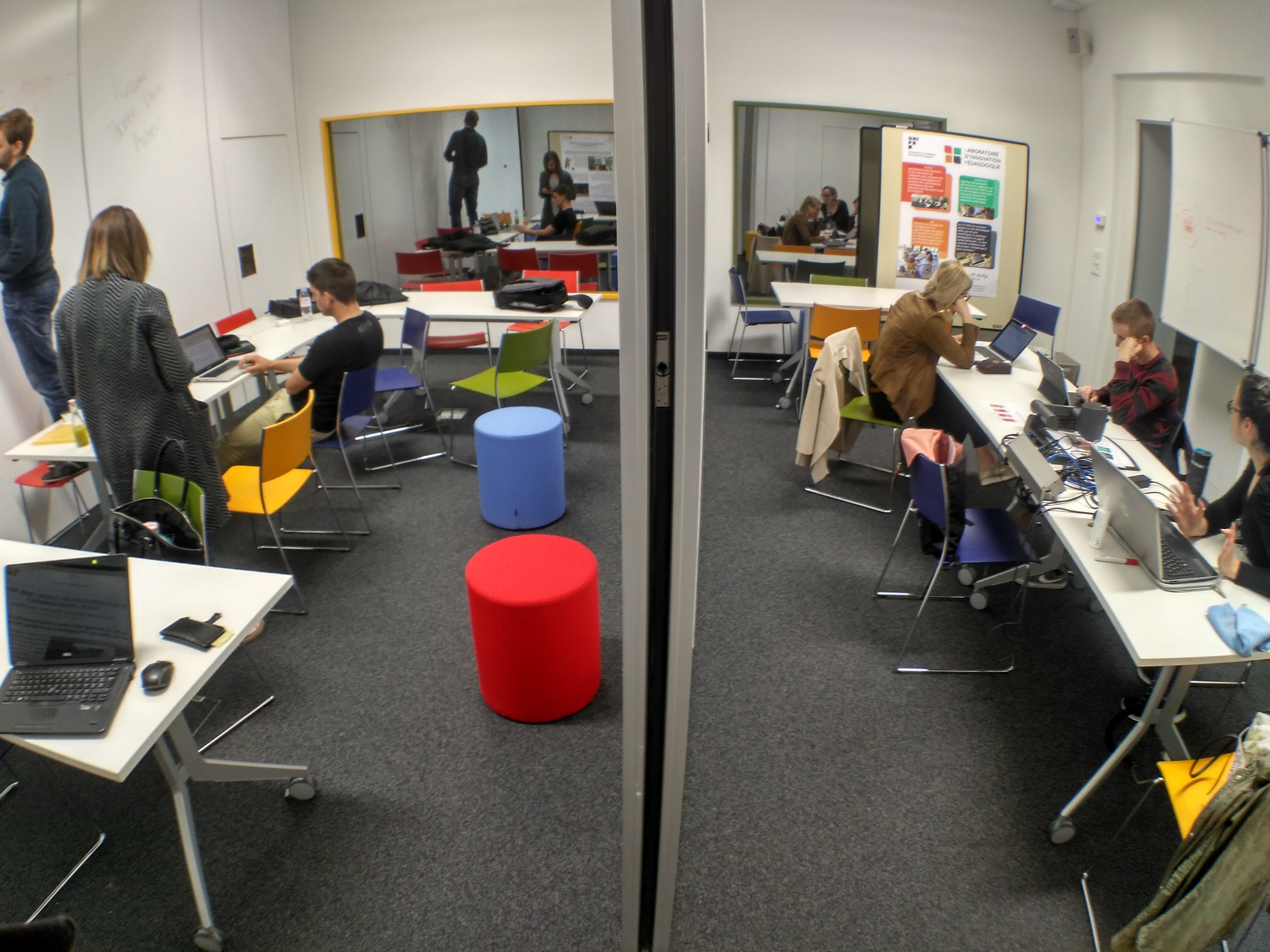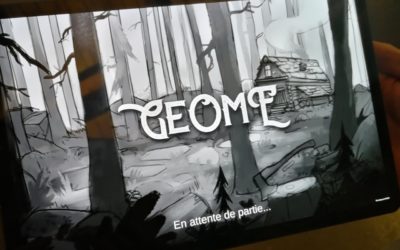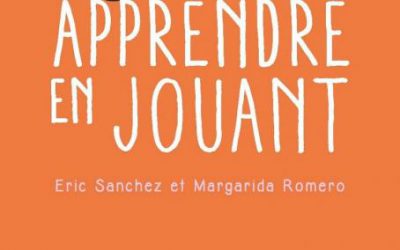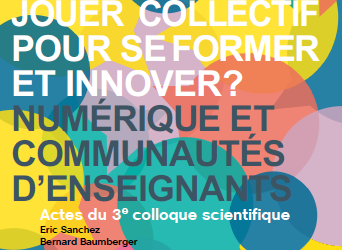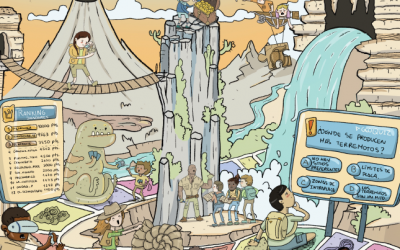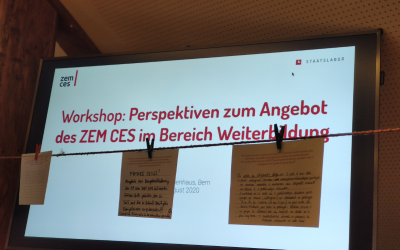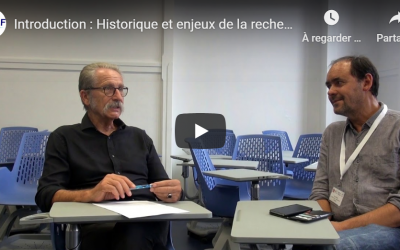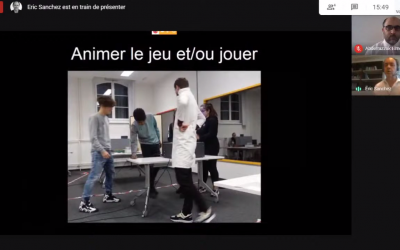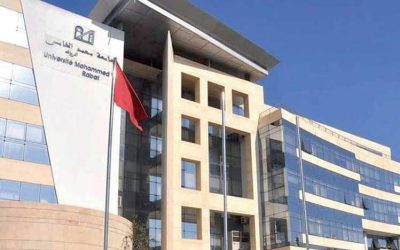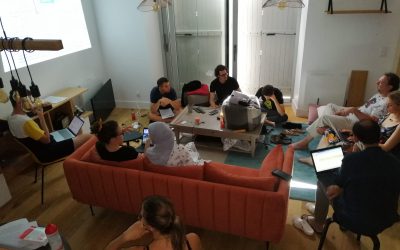co.LAB – A Digital Lab for the co-Design, co-Development and co-Evaluation of Digital Learning Games
Interest in Digital Learning Games (DLGs) has flourished at all levels of education. Digital Learning Games contribute to increasing students’ motivation and engagement, and are effective tools to support learner centered teaching practices. However, the design, development and uses of DLGs remain an issue due to the gap between teachers, game developers and researchers.
At the crossroads between educational and computer sciences the goal of the co.LAB project is to improve the design, development and uses of Digital Learning Games at all educational levels in Switzerland. This goal will be achieved by the development of what we call the co.LAB: a collaborative methodological framework between teachers, game developers and researchers in educational science, associated with a collaborative digital platform dedicated to co-design, co-development and co-evaluation of DLGs.
With the development, implementation and assessment of the co.LAB methodology and digital platform, we want to answer the following research questions (RQ).
RQ1: What methodology is needed to support collaborative DLG design and development?
RQ 2: What are the digital platform features necessary to support the collaborative DLG design and development process?
RQ 3: What are the effects of the methodology and digital platform on development cost and duration (efficiency)?
RQ 4: What are the effects of the methodology and digital platform on the quality of DLGs produced (relevance and effectiveness)?
RQ 5: What are the drivers for adoption of the methodology and digital platform by the educational, game developer, and research communities?
Following a design-based and mixed methodology, the co.LAB methodology and digital platform will be implemented and tested with the design, development and evaluation in real educational contexts of two showcase games dedicated to medical education (higher education) and computational thinking (secondary education). They will be used as a proof of concept. The experimentations will be carried out with classes both in a secondary school and at a university of applied sciences. The data collected will be based on an ethnographic approach on the one hand (questionnaires and focus groups carried out with stakeholders), and on the digital traces of users of the platform on the other hand.
By including a digital infrastructure for digital learning resources development and by providing, as a use test result, two digital learning games the project is fully in line with the PNR77 goals and more specifically with the module “Education, learning and digital change”. In addition, the co.LAB methodology, digital infrastructure and laboratory may serve both as an example of the introduction of digital in education and as a basis for future co-development of open digital educational resources in general.
Durée du projet
01/2020 – 12/2023
Financement
Fonds National Suisse

Requérants principaux
Dominique Jaccard HEIG-VD et Eric Sanchez, Université de Fribourg
Partenariat
Haute Ecole d’Ingénierie et de Gestion du Canton de Vaud
Membres du projet
Estelle Prior Unige
Mariem Jaouadi Unige
Membres associés
Nadine Mandran LIG/U. Grenoble
Matthieu Vermeulen IMT Nord Europe
Emmanuel Beffara U. Grenoble
Gaëlle Guigon IMT Nord Europe
Jérémie Humeau IMT Nord Europe
Anthony Fleury IMT Nord Europe
Contact
Eric Sanchez (eric.sanchez@unifr.ch)
Dernières actualités relatives à cette recherche
Premiers tests du jeu Geome au musée de la Nature à Sion
Le 9 décembre dernier, enseignants, chercheurs, médiateurs du musée et informaticiens se sont réunis au Musée de la Nature à Sion pour les premiers tests du jeu GEOME et de son Compagnon Digital. Le jeu est le système de suivi du joueur sont développés dans le cadre...
Le Learning Lab à la rencontre des étudiante·s
Novembre 2020, sur les sites universitaires de Pérolles et de Regina Mundi, les étudiant·e·s se font rares. Néanmoins, celles et ceux qui ont fait le choix de se rendre dans les bâtiments universitaires, pour réviser, ou trouver un peu de calme dans ces lieux...
Apprendre en jouant
Cet ouvrage, co-écrit avec Margarida Romero et avec la contribution de Thierry Vieville paraîtra le 8 octobre 2020. En 9 courts chapitres, nous tentons de déconstruire 9 mythes sur l'apprentissage par le jeu.Sanchez, E., & Romero, M. (2020). Apprendre en jouant....
Actes du colloque scientifique de Ludovia#CH 2020
Les actes du colloque scientifique de Ludovia#CH 2020 sont en ligne et peuvent être téléchargés sur le site de l'événement. Sanchez, E., Baumberger, B., Jaccard, D. (2020). Jouer collectif pour se former et innover. Numérique et communautés enseignants. Actes du...
“Geome”, un juego para comprender el Antropoceno durante las visitas escolares a un museo
Le projet PLAY a conduit au développement du jeu "Geome" qui sera expérimenté au Musée de la Nature, à Sion, à la fin de l'année 2020. Le jeu qui est conçu pour amener des élèves à réfléchir à leur rapport à la nature dans le cadre de visites scolaire est décrit dans...
Atelier du ZEM CES
Le LIP a fait sa rentrée en participant à un atelier organisé par le Centre suisse pour l’enseignement au secondaire 2 ZEM CES. Le ZEM DES est une agence spécialisée de la CDIP qui a pour mission de fournir un soutien au développement des écoles secondaires 2 et de...
Historique et enjeux de la recherche en EIAH
Conduit en 2018 dans le cadre du projet ORPHEE, cet entretien avec Nicolas Balacheff sur l'histoire et les enjeux de la recherche sur les environnements informatiques pour l'apprentissage humain (EIAH) est resté assez confidentiel. Nous le publions sur notre site car...
Innover en formation avec le jeu
Dans le cadre des activités de son École Pédagogique, l'Université Mohammed V de Rabat a organisé un webinaire sur le thème : "Innover en formation avec le jeu", le Mardi 07 Juillet 2020 à 15h. Le Webinaire était animé par Eric Sanchez, Professeur au Centre...
Innover en formation avec le jeu
Un webinaire à venir dans le cadre des activités de l'École Pédagogique de l'Université Mohammed V de Rabat. Le webinaire aura lieu le mardi 07 juillet 2020 à 15h (heure Maroc) sur la chaine YouTube de l’Université. La thématique abordée sera "Innover en formation...
Seconde thèse-jam du LIP à Menetru-le-Vignoble
Le LIP a pris ses quartiers d’été à Menetru-le-Vignoble dans le Jura français pour sa thèse-jam 2020. L’idée de thèse jam est inspirée de celle de jam session pour le jazz. Il s’agit, dans un temps limité, pour les doctorants du LIP, de travailler et échanger sur un...

